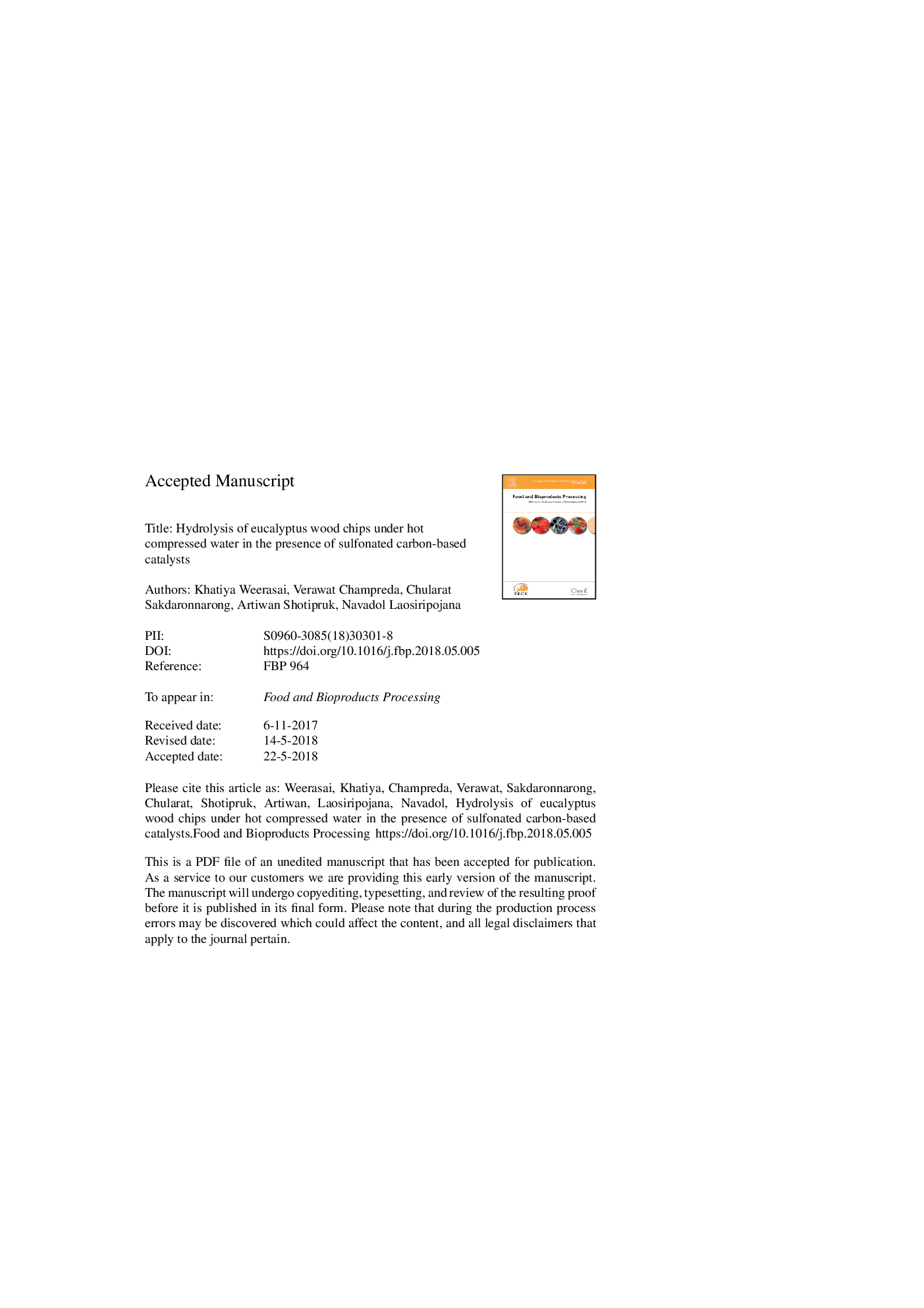| Article ID | Journal | Published Year | Pages | File Type |
|---|---|---|---|---|
| 6488339 | Food and Bioproducts Processing | 2018 | 33 Pages |
Abstract
Hydrolysis of lignocellulosic biomass to sugars and derivatives is a key step in production of biofuels and commodity chemicals in a biorefinery. In this study, catalytic hydrolysis of eucalyptus chips with solid sulfonated carbon-based catalysts prepared from three different carbon precursors (sucrose, glucose, and xylose) was studied under hot-compressed water at 150-250 °C with reaction time of 1-10 min. Increasing temperature up to 200 °C led to higher sugar yields from cellulose and hemicellulose while further increase in temperature caused higher formation of sugar degradation by-products. Sulfonated-sucrose (SO3H-Suc) showed the greatest performance on sugar production compared to other catalysts with less formation of furans and anhydroglucose; its high catalytic activity was related to its high acid site density as proven by NH3-TPD measurement. Size reduction and chemical pretreatment of the biomass were found to enhance the hydrolysis yield and reaction selectivity. The highest sugar yield of 40.7% comprising glucose, fructose, and xylose was achieved using 5% (w/w) SO3H-Suc at 200 °C for 5 min with milled biomass (60-100 μm) pretreated by alkaline oxidation. The work provides an alternative catalytic process for hydrolysis of lignocellulose in biomass industry.
Related Topics
Physical Sciences and Engineering
Chemical Engineering
Bioengineering
Authors
Khatiya Weerasai, Verawat Champreda, Chularat Sakdaronnarong, Artiwan Shotipruk, Navadol Laosiripojana,
